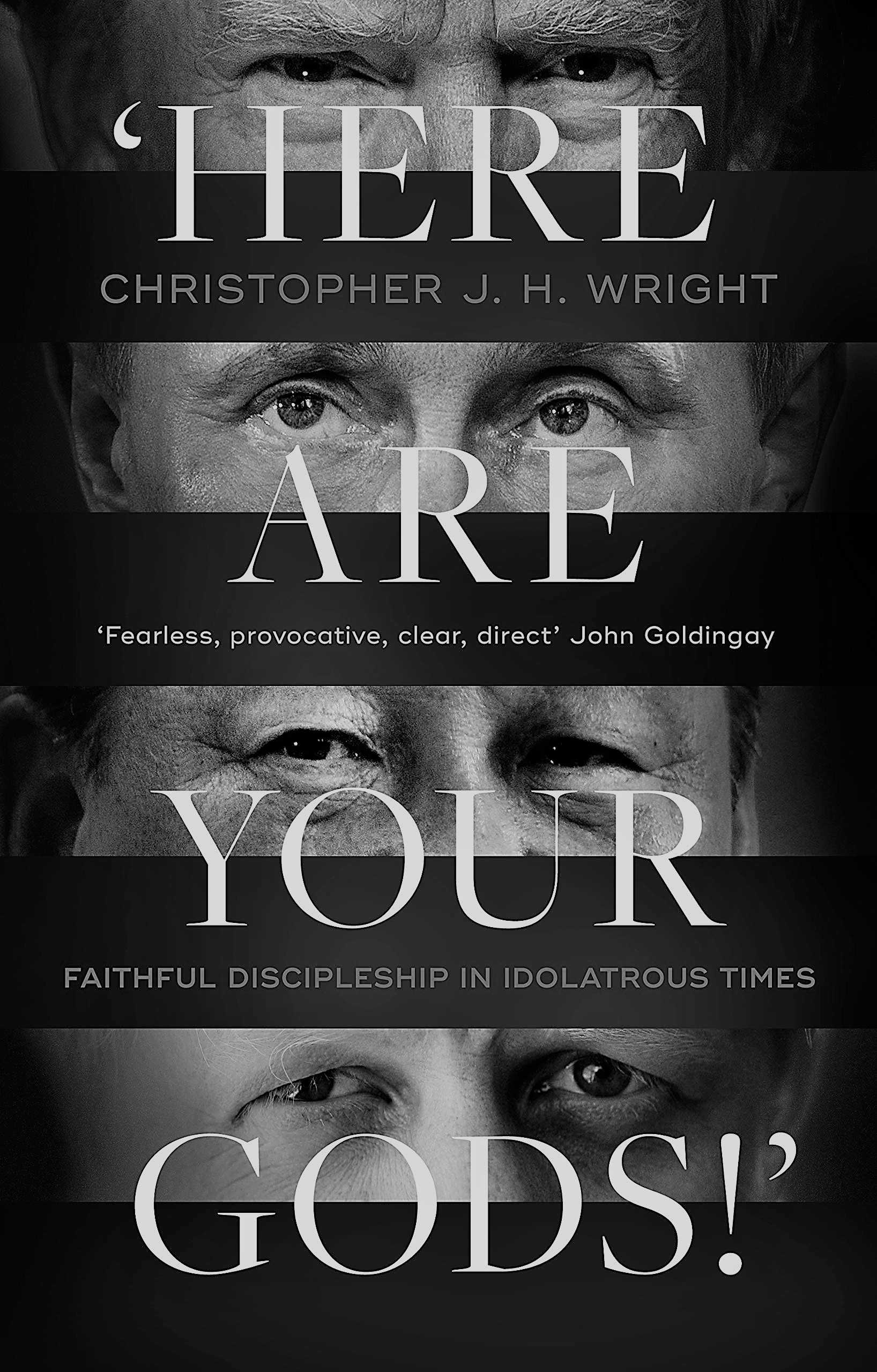Greg Smith reviews Chris Wright’s recent book on idolatry. He applauds Wright’s critique of the idols that dominate our contemporary politics, and wonders whether the solution lies in a conception of politics that is much broader than our current election dramas and celebrity leaders.
Our ‘new normal’ may be perplexing and frustrating, but it can also be rightly described as apocalyptic inasmuch as it begins to reveal the main objects of worship in contemporary culture. In Britain, the pandemic has highlighted the tensions between the sacred beliefs of economic success, the saving power of the NHS and the value of individual human lives. Chris Wright’s new book explores such issues, framing them through the lens of idolatry—a practice well understood (and rejected) by the three major faiths of the Abrahamic tradition.
This is a short and easily readable book, aimed at a student or educated lay Christian audience. The author is an established Old Testament scholar and missiologist, working for the Langham Partnership. It offers a clear, conservative exposition of key biblical texts about idolatry, with a radical, practical and political application in today’s world.
The first part of the book explores the concept of idolatry in the Hebrew scriptures. Wright argues that the biblical category of idolatry—when it is even considered at all—is often treated simplistically. Christians may argue about images and statues, sometimes even refer to the personal moral pitfalls of worshipping money, sex, power and status, but they rarely consider politics or the economy as possible idols. The Bible poses the question, ‘Do other gods exist within the same order of existence that Yahweh does?’, and answers that ‘Yahweh alone is the universal Creator, the sovereign Ruler of all histories, the Judge of all nations, and the Saviour of people from all nations who turn to him.’ (p. 13) Wright strongly affirms that God remains sovereign over history.
In part two, he moves on to political idols and empires and the nature of biblical faithfulness within politics. Wright accepts that bringing the Bible to bear on contemporary politics is usually very uncomfortable. Yet the whole idea of gods and idols, is such a prominent theme in the Bible (especially in the arena of public and national life), that the topic cannot be ignored.
He mentions how Jeroboam fashions two golden calves at either end of his kingdom as a political act to consolidate and sanctify his state power; how Pharaoh’s oppression was overcome; how the national gods of the tribes of Canaan were powerless before Yahweh; and how Nebuchadnezzar was brought to his knees. Jonah and Nahum preach the sovereignty, judgement and mercy of God over Nineveh. Meanwhile, the prophet Amos draws a noose around the neck of Judah and Israel by first pointing his finger at surrounding nations for idolatry and injustice and then observing how three fingers point back at his own nation. The key lesson is that all empires come to an end under the sovereign hand of God. God brings princes to naught and reduces the rulers of this world to nothing.
The book then engages with our current context. When God turns up in public speech it is an ordinary, traditional and lightweight god that is referred to. The ‘real’ gods—who pull the levers of political, economic and cultural power—are the false gods and idols that humans have bowed down to for millennia. They include: the idol of prosperity—which Jesus called ‘Mammon’, the idol of national pride—symbolised by patriotic songs and flags in church, and the idol of self-exaltation and celebrity. Here Wright becomes very specific:
‘What does it say about the state of our culture and politics that two men have risen to top political leadership in the United Kingdom and the United States who are both notoriously and demonstrably addicted to fabrication, exaggeration, false claims, self-contradiction, and downright mendacity?’ (p. 92)
He finds something deeply satanic in this vicious attack on truth.
The third and final part of the book is an exhortation to the church to be ‘Bible people’: living by the story of God and committed to the mission of God. Christians must be kingdom people, submitting to the reign of God and recognising the difference between the kingdom of God as taught and modelled by Jesus and the Christendom way of thinking. We are called to follow the Jesus of the cross, not the Jesus of Constantine. What Wright questions is not Christian involvement in politics but the idea that Christians should seek supremacy in the political arena. It will not do to argue that, since political authorities are appointed by God, we must simply approve of all they do.
Indeed, prayer is a political act, for it appeals to an authority higher than the state. The psalmists pray that God would put down the wicked in power and raise up and vindicate the oppressed. So we pray for our rulers, sometimes through gritted teeth, but we also pray against them in relation to policies and actions that are incompatible with biblical standards for society.
Overall, this is a useful and important book, combining biblical exegesis with a radical political message. I wonder if the established Church of England can withstand such a critique, and what William Temple or even today’s bishops—so often criticised for their guarded and woolly political statements—would make of it?

Discuss this